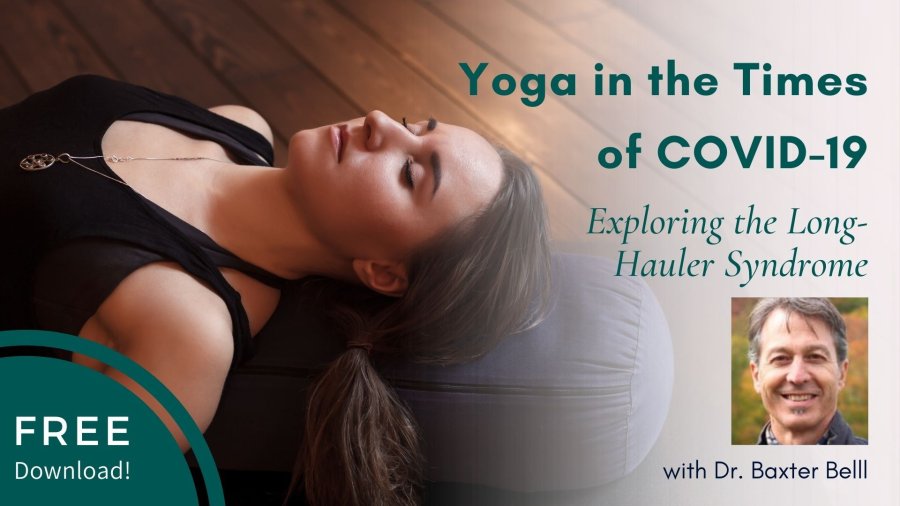Free Download! Yoga in the Times of COVID-19: Exploring the Long-Hauler Syndrome
Course Info
- Price:
- $0.00
Baxter Bell
 Baxter Bell, MD, E-RYT 500 fell in love with yoga in 1993 while he was working full-time as a family physician. His appreciation for the potential of yoga for fostering health, healing, and equanimity was so great, he soon stepped down from his medical practice and trained to become a yoga teacher...
Baxter Bell, MD, E-RYT 500 fell in love with yoga in 1993 while he was working full-time as a family physician. His appreciation for the potential of yoga for fostering health, healing, and equanimity was so great, he soon stepped down from his medical practice and trained to become a yoga teacher... 
The COVID-19 pandemic has dramatically changed our ability to work, travel, and spend time with family members and friends.
As we enter the third year of the pandemic, new questions continue to emerge about the virus, its long-term effects, and how we can keep ourselves safe.
And yet, one thing has become eminently clear: COVID-19 is unlike any other virus because it can leave an incredibly long-lasting footprint as evidenced by the lingering symptoms that affect as many as 40% of those who come down with COVID, according to research.
What are the symptoms of Long COVID as this condition has come to be known? What do we know about how we can prevent or relieve it. And, can yoga make a difference?
In this free download, yoga therapist and M.D. Dr. Baxter Bell leans on his over 20 years of experience as a yoga teacher and as a physician to explain the little recognized after effects of COVID and what we know about how to potentially address them.
People who experience acute cases of COVID-19 or even those who may be asymptomatic after COVID-19 exposure can develop the debilitating constellation of symptoms associated with long COVID, including fatigue, brain fog, headaches, dizziness, and shortness of breath.
Sadly, although doctors may be able to treat these symptoms individually, there is still no treatment for the underlying cause of Long COVID. For this reason, it can be challenging for caregivers, friends, and family members of those with Long COVID to know how they can best serve those who continue to experience daily suffering from the effects of the virus.
Because yoga includes numerous techniques to strengthen the respiratory system, can yoga be a means of preventing or relieving the symptoms of Long COVID?
It is too early to say, but not surprisingly, there is growing research interest in the potential effects of yoga in addressing symptoms of Long COVID.
“Yoga addresses the individual. It can address specific conditions or concerns, but it also has a beautiful, more generalized impact on mental emotional wellbeing and on addressing feelings of depression, and anxiety,” says Dr. Baxter Bell, MD, physician, and yoga therapist. “Nose breathers have much better health outcomes than mouth breathers when it comes to chronic illness and infection. So, there are some simple things that we can do, and that can be extremely powerful.”
The most powerful techniques in yoga teachers’ toolkits are often the simplest, Baxter notes.